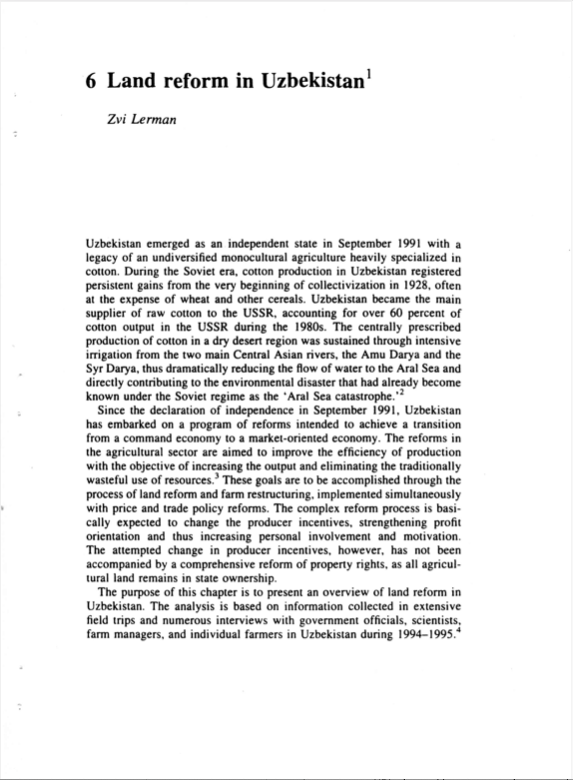Land Reform in Uzbekistan
FIRST PARAGRAPH OF CHAPTER: Uzbekistan emerged as an independent state in September l99l with a legacy of an undiversified monocultural agriculture heavily specialized in cotton. During the Soviet era, cotton production in Uzbekistan registered persistent gains from the very beginning of collectivization in 1928, often at the expense of wheat and other cereals.





